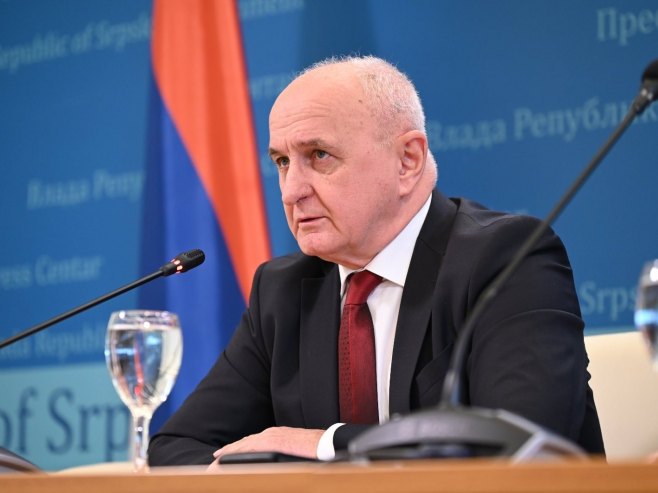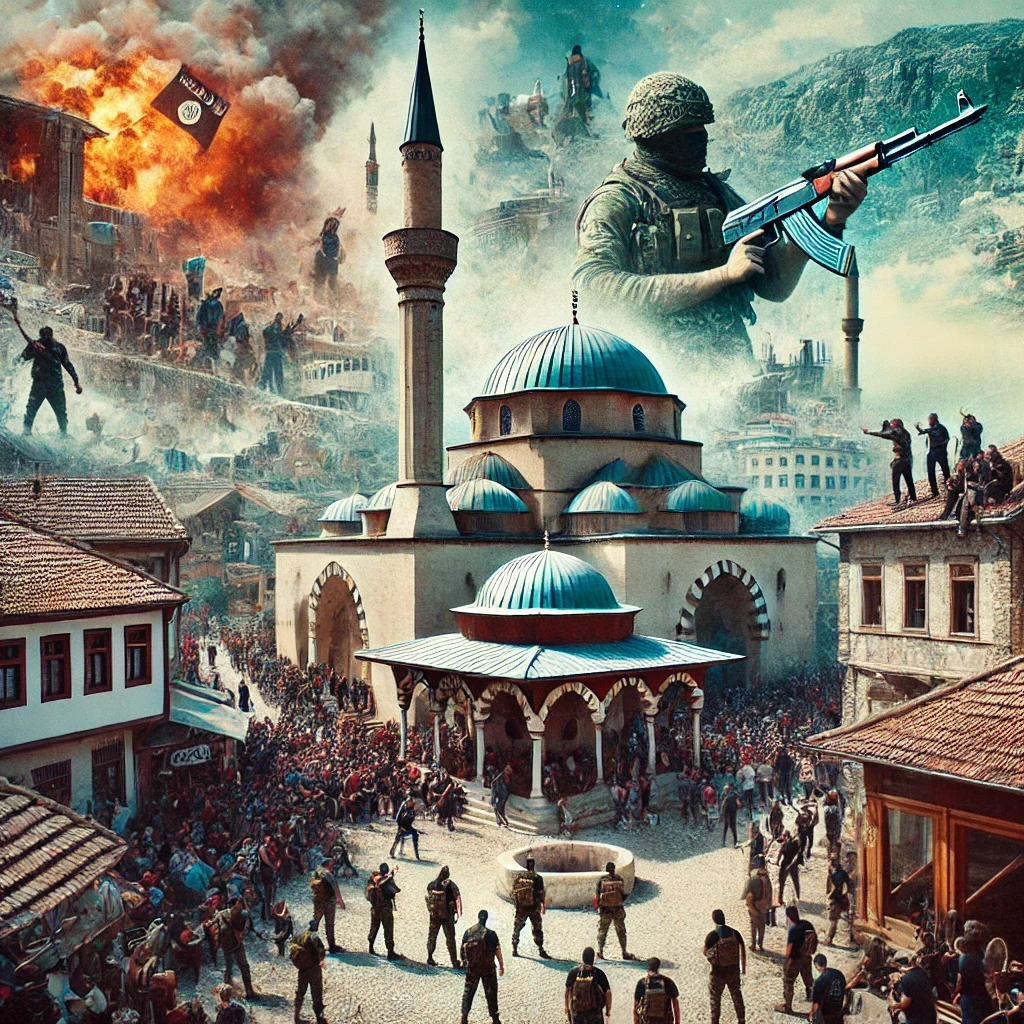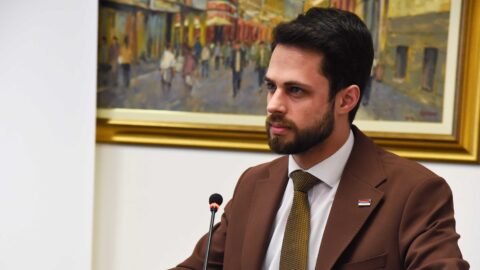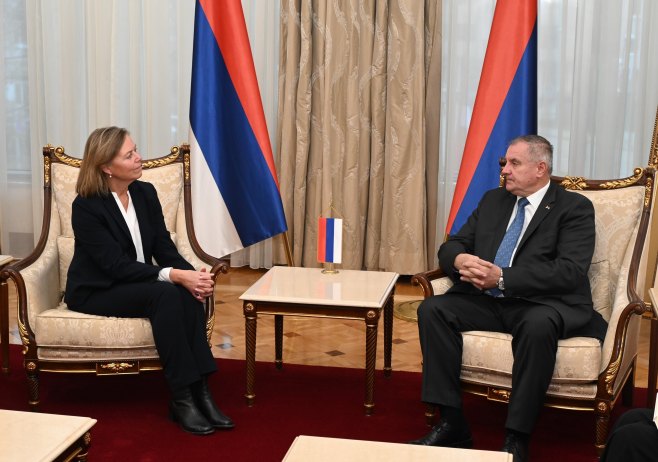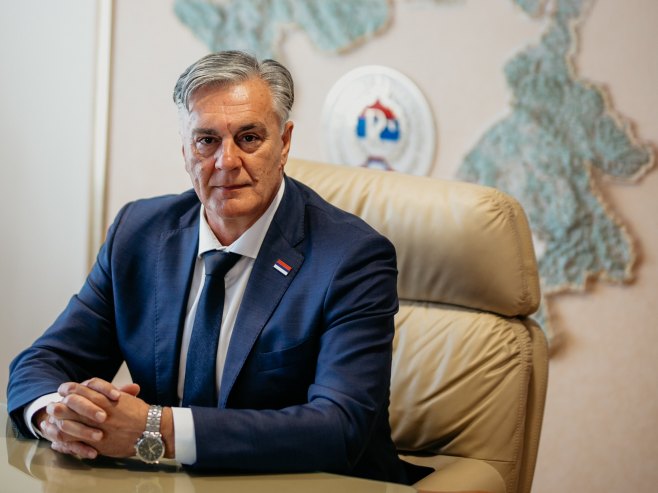Does the war in the Middle East incite the radicalization of Muslims in the Western Balkans? They perceive the war in Gaza as a global conflict against Muslims, says political scientist Džihić.
Islam in Bosnia and Herzegovina and Sandžak in southwestern Serbia is considered open and tolerant. Here, Sunni Muslims have lived together with Christians and Jews for centuries, creating their own form of European Islam. However, since the 1990s, this Islam has been under constant pressure from external influences.
The attack on the guard of the Israeli embassy in Belgrade on June 29, 2024, has sparked fears of a new wave of radicalization.
Before the war in BiH (1992-1995), there were neither Salafis nor Wahhabis in the Balkans, says Vedran Džihić from the Austrian Institute for International Affairs in Vienna. “They have no roots in the Balkans,” he emphasizes, adding that radical groups form a small minority among Muslims.
Influence of radical groups during the war in BiH
Muslim Bosniaks received significant military support from Islamic countries during the war in BiH. With foreign fighters came radical strains of Islam that did not disappear after the war. These form the “foundation of political Islamism” in BiH, writes Karsten Dimel in an analysis for the Konrad Adenauer Foundation (KAS), which is close to the CDU. Dimel was the head of the KAS office in Sarajevo from 2014 to 2018.

During the war, about 4,000 mujahideen from Arab countries fought on the Bosniak side, many of whom remained in the country after the Dayton Peace Agreement was signed in 1995. Since the late 1990s, radical groups have, with open support from Saudi Arabia, established themselves in some parts of BiH and Sandžak. Saudi money has built Salafist mosques and cultural institutions.
For socially frustrated young people, the Islamic State became attractive during the war in Syria and Iraq, leading them to travel to these countries for jihad, says Džihić.
BiH was then one of the European countries with the highest number of Islamic State fighters per capita. These IS sympathizers mainly came from a few well-monitored so-called Salafist villages in Bosnia. After the fall of IS in Syria and Iraq in 2019, this form of radicalization has declined; since then, there have been no Islamist attacks in the Western Balkans.
Saudi withdrawal
Nonetheless, radical organizations still exist, even though Saudi Arabia has likely reduced its financial support. Saudi Crown Prince Mohammed bin Salman, who effectively rules the country, announced in January 2020 that he would no longer support the construction of mosques abroad. In a 2021 speech, he called the “ultraconservative interpretation of Islam outdated.”

This has weakened one pillar of extremism, but new factors now play a role. The current war in the Middle East could become a new impetus for radicalization.
According to media reports, the attacker in Belgrade, a Serbian convert, was radicalized within these groups. His last known address was in Novi Pazar, a city with a majority Muslim population in Sandžak.
Radicalization due to the war in Gaza?
“So far, the war in Gaza has had little impact on the Balkans,” says Giorgio Cafiero, a Balkans expert at the US think tank Gulf State Analytics. “But the longer the situation in Gaza lasts, the greater the risk.” Cafiero states that the war in Gaza now contributes more to the radicalization of young Muslims than any other conflict in the world. “There is strong emotionalization in the Arab and Islamic world due to the numerous deaths in Gaza.”
Vedran Džihić also believes that current events in the Middle East contribute to a new wave of radicalization. In the Western Balkans, the war in Gaza is perceived as a global conflict against Muslims, says the expert, adding that many feel that “the West mourns dead children in Ukraine, but remains silent about Gaza.” This leads to resentment, the awakening of anti-Western sentiments, and antisemitism, notes Džihić.
Serbia’s policy is also perceived as ambivalent. On the one hand, the country internationally supports the Palestinian cause, while on the other hand, since October 7, 2023, when the terrorist group Hamas committed a massacre in Israel, it has been supplying weapons to Israel.
Social injustice and discontent
Most Muslims in BiH and Sandžak reject extremist tendencies as an abuse of their religion. The Islamic community has clearly distanced itself from the terrorist attack in Belgrade.
However, in addition to the war in Gaza, social inequality and unfulfilled promises of a better future after the war in BiH also provide fertile ground for radicalization.
“The entire region experienced a significant social and economic decline in the 1990s,” says Vedran Džihić. “Hopes for recovery have not materialized.” Džihić explains that only a small, new elite close to the regimes benefits, while the majority of citizens struggle with marginalization and a low standard of living close to the poverty line. There is significant discontent among young people, Džihić notes, adding that this causes tens of thousands of people to emigrate annually.
“This situation leads to frustration and provides fertile ground for extreme ideologies, not just Islamic ones, but also for Serb nationalism,” says the political scientist. He points out that among Muslims in Sandžak, there is also a feeling of being discriminated against and neglected by Serbs, adding that after the attack in Belgrade, the risk of anti-Muslim sentiments in Serbia is increasing. This could further intensify the spiral of frustration and radicalization, warns political scientist Džihić.
Source: Deutsche Welle

